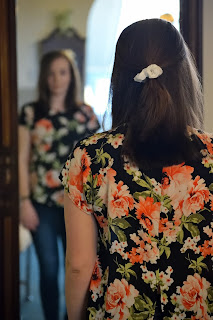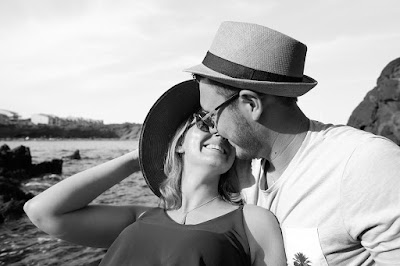It's Me, Not You: Breaking Up with My Mom Friend.
(By Deborah Rafii Essner)
Years ago, I met a fellow mom (let’s call her “Jan”) at the park when our children were preschool-aged. Seeing that I had a daughter around the same age as her son, she struck up a conversation with me and we talked while our children played in the play structure.
“Your daughter looks just like you!” she said. “Where does she go
to preschool?”
The questions were flung rapid fire at one another – two moms
eager to share in the journey of motherhood.
“Do you guys do any other classes outside of school? Henry loves
gymnastics and I just signed him up at this place in Culver City. It’s
amazing!”
“Have you taken him to the Skirball Museum yet? We love the Noah’s
Arc exhibit.”
After an hour of chatting while our children played, Jane and I
exchanged phone numbers and made a plan to have lunch – just us moms.
Within a week, we shared articles of interest with one another, recipes for homemade smoothies, and met up for a walk. We compared notes about raising a family, balancing motherhood with professional interests, nurturing our relationships with our husbands, and everything else in between.
“Do you get along with your mother-in-law? Does she annoy you?”
“Are you guys traveling anywhere fun for the holiday weekend?
I liked Jan. She was thoughtful and witty and she had many of the
same ideas I had about motherhood and childrearing.
“She can’t wear normal workout clothes from Target? It has to be
Lululemon? Does she have time to do yoga and Pilates on the same day? I don’t
think so!” Or: “Seriously, I would never exclude anyone from my son’s birthday
party. How rude is Samantha for not inviting my Henry to Jordan’s karate
party!”
I had only known her for a couple of weeks, so it felt awkward and
poorly-timed to tell her to just chill out. My discomfort only grew stronger
and after avoiding her invitations for a while, I agreed to meet her for lunch
one afternoon.
Immediately, Jan sat down and made a bold statement. “I haven‘t
seen you in a couple of weeks. I was beginning to think you didn’t like me
anymore.” Though I explained to Jane that I had just become busy with other
responsibilities, her intuition about my reticence to continue our friendship
proved accurate. I really didn’t want to be friends.
Without confrontation, Jan and I ended our friendship after lunch
that day. After a couple of years, I noticed she had actually unfriended me on
Facebook. It stung a little, but it didn’t surprise me (and I deserved it). I
didn’t want to be around Jan because I didn’t want to be like
Jan. We hadn’t known each other long enough for me to call her (us) out on the
judgmental behaviour.
What I have learned is that the universe is a brilliant mirror.
What you dislike the most about yourself, or what you subconsciously wish to
change about yourself, will magically be reflected back at you – if you
are paying attention.
After the Jan episode, I’m paying a lot more attention to what
triggers the strongest reaction from me. Without fail, it has everything to do
with me.








Comments
Post a Comment